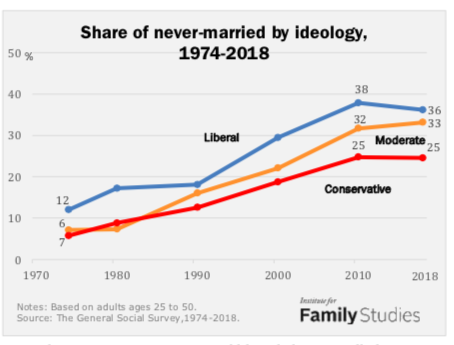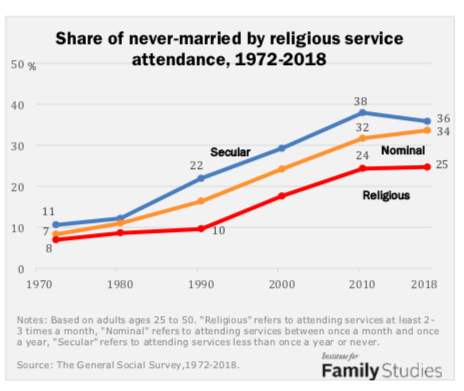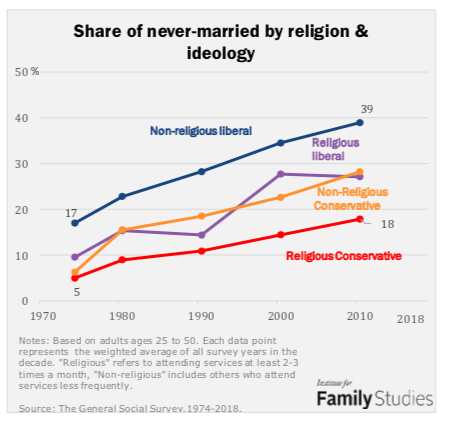Highlights
Editor's Note: The following article is excerpted from the new IFS research brief by Wendy Wang, "More Than One-Third of Prime-Age Americans Have Never Married."
Culture and belief also play a role in family formation in America. For example, Americans who hold conservative views are more likely than liberals to support marriage and less likely to be single.
Despite the fact that Americans of all ideologies have experienced a drop in marriage rates, the marriage gap between conservatives and liberals has actually become somewhat larger since the 1970s. In 2018, 36% of liberals had never been married, which is 11 percentage points higher than the share among conservatives (25%). In 1974, the gap between the two groups was 5 percentage points, according to an IFS analysis of the General Social Survey.

Meanwhile, Americans who regularly attend church or religious services are less likely than those who are secular or occasional churchgoers to have never married. According to the General Social Survey, one-quarter of frequent church goers ages 25 to 50 are single today, compared with 36% of secular Americans, and 34% of those who only occasionally attend religious services. This marriage gap by religious attendance was small in the 1970s and 80s but grew significantly in the 1990s and remain largely unchanged today.

Looking at religion and ideology together, it is clear that liberal, non-religious Americans are most likely to have never been married. This was the case in the 1970s as well as in the 2010s. Between 2000 and 2018, nearly 40% of non-religious liberals had never been married, compared with 18% of religious and conservative Americans.
On the other side, Americans who are religious and conservative are the least likely to be single. Even though all groups have experienced a rise in the share of never marrieds, the gap between non-religious liberals and religious conservatives increased from 12 percentage points in the 1970s to 21 percentage points in the 2010s.

In the middle of the two trend lines are Americans who are religious and liberal or non-religious but conservative. The share of never married among these two groups is similar, although the share among religious liberals fluctuates more than among the non-religious conservatives. The never-married trend among moderates falls somewhere in between, with religious moderates being less likely than non-religious moderates to be single (not shown in the figure).
Download the full research brief here.
Wendy Wang is the director of research for the Institute for Family Studies.















